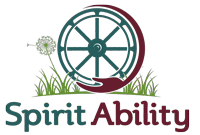Circumnavigating the National Disability Insurance Scheme (NDIS) can be difficult at the best of times, even for those with a significant knowledge base surrounding it. So, for those individuals that find themselves in a position whereby they need to access support from the NDIS for whatever reason, such as having a child recently diagnosed with a disability, being in an accident rendering themselves or a loved one with a disability or even yourself or a loved one developing an illness leading to disability such as dementia, motor neurone disease, multiple sclerosis and so on… it can be an extremely distressing process and cause a lot of stress if you are not supported adequately in the journey.
If you have developed a disability as the result of an accident, medical condition or progressive disease you would usually have been in hospital and as a result have access to a social worker who will be able to guide you, they will help make sure you get the help you need, such as emergency accommodation, financial support, and health or legal services. They will coordinate the different support providers, while advocating for you and helping you to navigate the healthcare system.
Otherwise you can find social workers in hospitals, community health centres, aged care services, mental health services, and drug and alcohol services. They also work in education facilities, child protection services, family support, employment services, the justice system, housing, and disability services. Some social workers operate in private practice.
You can speak to a Centrelink social worker by calling the Centrelink Employment Services line on 132 850 and asking to speak to a social worker, or by visiting your local service centre.
If your child is diagnosed with a developmental delay or a disability under the age of seven then you contact the Early Childhood Early Intervention (ECEI) who are excellent at supporting families here in central NSW who have young children needing supports. ECIE tailor supports to your individual child’s needs and circumstances and if required will help with the NDIS process.
The NDIS support individuals with disabilities aged from 7 to 65 yrs of age in many ways; it basically provides “reasonable and necessary funding to people with a permanent and significant disability to access the supports and services they need to live and enjoy their life. Every NDIS participant has an individual plan that lists their goals and funding. NDIS participants use their funding to purchase supports and services to help them achieve their goals. Everyone has different goals. Goals might include things like volunteering, getting and keeping a job, making friends or participating in a local community activity. NDIS participants and their nominee or third-party decision makers control the support they receive, when they receive it and who provides it.”
In other words, the individual with the disability can control how the funds are used to support them and they are able to choose which services they access in order to receive that support. The Disability Advocacy Service in Bathurst provide excellent support for anyone that needs support to understand and access services and will speak to individuals on your behalf.
Local Area Coordinators can be found at Social Futures in the Centrepoint Arcade in Summer street on the first floor; LAC’s work with people with disability and psychosocial disability, they work with their local community to make it more inclusive for all people with disability. They can help link you to information and support in the community and mainstream services, such as health and education. For most people who become NDIS participants, LACs will work with you to develop your plan, help you implement it, monitor how your plan is going and undertake your Plan Reviews. Your LAC will be your main point of contact for the NDIS.
LACs also work with people with disability, participants and their families to build capacity and to support them to achieve their goals by building new community networks and accessing support and services in their community. They engage with local organisations and communities, including other government services, to build awareness and improve opportunities for people with disability to access and actively participate in community activities.
Your NDIS plan should provide funding for a Support Coordinator, especially initially; either until you become more knowledgeable of the NDIS and the services you are able to access wish to perform this function yourself or on an ongoing basis. Support Coordination is generally funded to strengthen your ability to connect to and coordinate with a range of more complex informal, mainstream and funded supports; they help you to coordinate services from a range of suppliers or providers, address service delivery issues and develop the capacity and resilience of your support network. Unfortunately, trying to find a Support Coordinator in the Central West is difficult and good ones are even more difficult to find; but your Social Worker, LAC and the Disability Advocacy Service should be able to advise.
Support Coordinators work closely with you, your service provider and if applicable, your plan manager, in order to ensure that the funding that you have been provided with by the NDIS within your plan is used effectively, correctly and you are not over-serviced so your funding runs out too quickly as a plan funding usually is over a twelve month period and different aspects are allocated for specific use such as equipment or access to specialist support as well as support for personal care and access to the community if required.
The NDIS funding can be managed in one of three different ways and this is extremely important to understand when you initially apply for funding as it can affect your choice of services later.
NDIA managed – whereby services submit invoices to the NDIA for payment – this can be quite restrictive as to your choice of service as they all must be NDIS registered in order to access the funding.
Plan Managed – whereby your plan has funding allocated for a plan manager who managed the funding for you, and service providers submit invoices to the plan manager for payment. Good Plan Managers work closely with you, your support coordinator and your service providers in order to ensure your funds are allocated appropriately and will last the twelve months. They should be able to provide you with a snapshot of what has been used, what is due to be paid out and what is left when requested.
Self-Managed – whereby you manage the funding yourself and you access the portal, set up and bank account, invoices are submitted to you for payment. This can be a time consuming and difficult task and you would be submitted to audits to prove where the funding has been spent so you need a clear paper trail. It does have benefits in that you have more control over the services you use.
With both Plan and self-management, it is possible to use services that are not NDIS registered and as more and more smaller service providers are setting up across the Central West, this does give you more choice.



